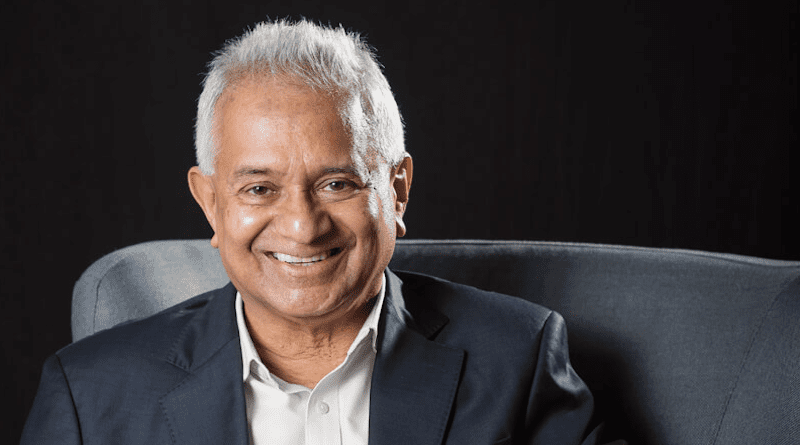Malaysia: The Political Persecution Of Tommy Thomas – Analysis
Caretaker prime minister Ismail Sabri Yaakob, without any political issues to run on in the upcoming general election, has turned the former attorney general Tommy Thomas’s memoirs into a political bettering ram to garner support within the Malay community.
A special task force formed by the Prime Minister’s Department just prior to the dissolution of parliament, submitted a report on Thomas’s book “My Story: Justice in the wilderness” to the caretaker prime minister, who passed it onto the police to frame up charges.
The report marked ‘Rahsia’ or secret, was posted on the Prime Minister’s Department official website in an attempt to discredit Thomas publicly. Ismail Sabri said at a political rally in Bagan Datuk, UMNO president Ahmad Zahid Hamidi’s former seat, that he had declassified the report so it could be used as ‘political bullets’ during the coming election campaign.
Ismail Sabri had previously instructed the current attorney general, now a caretaker to investigate Thomas for potential breaches of the Official Secrets Act (OSA), abuse of power, and criminal defamation during his tenure as attorney general under the former Pakatan Harapan government. This act in itself is legally dubious as the attorney general under the Malaysian Constitution should act independently.
The 241 page report, appears to be more a politically contrived document, than an unbiased investigation. Ironically, the report itself doesn’t recommend any charges be laid against Thomas. It only recommends further investigation take place. However, other recommendations focus upon bringing about institutional and other legal reforms, to overcome shortcomings within the legal system, Thomas has previously mentioned.
Ismail Sabri regardless has instructed police to frame charges in the lead up to the election campaign, thus politicizing the whole exercise.
From Thomas’s point of view, the report is a direct attack upon his personal and professional integrity. Making the report public shows the political intent of the special task force and caretaker prime minister.
On October 27th Thomas issued a writ against the authors of the report and the Government of Malaysia in the High Court, claiming the special task force had no legal basis, and was thus illegal, unconstitutional, and damaged his reputation.
This case will cause rumblings within the legal system, should it ever reach court.
The opposition has remained totally silent, as has the Bar Council over the issue. Mahathir Mohamed, the former prime minister, who Thomas served, threw him under a bus, claiming he was biased with his memoirs.
The importance of memoirs to Malaysia’s sense of history
Memoirs are a very important part of Malaysia’s historical record. Malaysia’s first prime minister Tunku Abdul Rahman gave a personal account of the nation’s quest for independence and early challenges of government in Political Awakening. Former prime minister Mahathir Mohamed also wrote a number of books that are ‘go to’ resources in understanding his view of the world. Singapore’s Lee Kwan Yew was a prolific writer on both Singapore and the region.
Within the western political world, former British prime ministers and US presidents wrote highly anticipated memoirs that journalists, historians and the public sort to understand why things were done the way they were. The books written by the three major actors in the dismissal of the Whitlam government in Australia back in 1975 gave historians multiple insights into the events and what was in the minds of those participating.
Likewise, Thomas set out to write a manuscript for history recording his views upon institutions and events during his tenure as attorney general. His book has given historians and political analysts views that would not be normally available in the future, when its is time to write down the history of the Pakatan government. These books are necessary for the public record, and ironically the special task force, took notice of this and made positive recommendations to improve Malaysian legal institutions.
Although, most of what Thomas wrote in his book was already public domain knowledge, it is the workings within these institutions that are important to readers to understand the decision making behind what happened.
Ismail Sabri’s selective persecution of Thomas during an election, almost two years after the book was published, is a deterrent for other public figures to write their memoirs, for fear of persecution by draconian laws. This undermines the nurturing of Malaysia’s democratic system.
A dangerous precedent has been set in pursing charges against a former attorney general for actions undertaken while serving the Crown. However, it will not be an easy job to frame charges can be proven beyond reasonable in a court of law.
The caretaker government undertaken and investigation into past public office holders during an election, with Ismail Sabri clearly stating his political objectives of this prosecution, makes a mockery of the rule of law and long accepted conventions.
It appears to be payback over the charging and conviction of former prime minister Najib Razak and other prominent UMNO members.
The caretaker government is abusing the law and using it for selective persecution of its enemies. The law as a political weapon in Malaysia is coming out of the box once again.
Malaysia’s continued progression as a democracy is at stake here.

